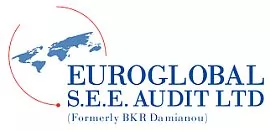On 26 April 2011 the Court of Appeal in Bucharest requested for a preliminary ruling, which was received by the European Court of Justice (ECJ) on 5 July 2012, with regards to the interpretation of provisions of the Eighth Council Directive 79/1072/EEC of 6 December 1979. The Directive referred to the harmonization of the laws of the Member States relating to turnover taxes and, more precisely, to the arrangements for the refund of value added tax (VAT) to taxable persons not established in the territory of the country, but who have designated a fiscal representative according to the national provisions applicable prior to the accession of Romania into the European Union.
The request was made in proceedings between E.ON Global Commodities SE, formerly E.ON Energy Trading SE (hereinafter referred to as "E.ON"), a company established in Germany, and the National Authority for Fiscal Administration – General Directorate for Solving Complaints and the General Directorate for Public Finance in Bucharest – the Department for administration of non-resident taxpayers (together referred hereafter as the "tax authorities"), concerning a refund of input VAT paid by E.ON in connection to its business in Romania.
The European Court of Justice ruled on Thursday, 6 February 2014, in Case C-323/12, the following:
"The provisions of the Eighth Council Directive 79/1072/EEC of 6 December 1979 on the harmonization of the laws of the Member States relating to turnover taxes - Arrangements for the refund of value added tax to taxable persons not established in the territory of the country, read together with Articles 38, 171 and 195 of Council Directive 2006/112/EC of 28 November 2006 on the common system of value added tax, as amended by Council Directive 2007/75/EC of 20 December 2007, must be interpreted as meaning that a taxable person established in one Member State and who has made supplies of electricity to taxable dealers established in another Member State has the right to rely on the Eighth Directive 79/1072 in the latter State in order to obtain a refund of input value added tax. That right is not precluded merely by the designation of a tax representative who is identified for value added tax purposes in the latter State."
The content of this article is intended to provide a general guide to the subject matter. Specialist advice should be sought about your specific circumstances.

